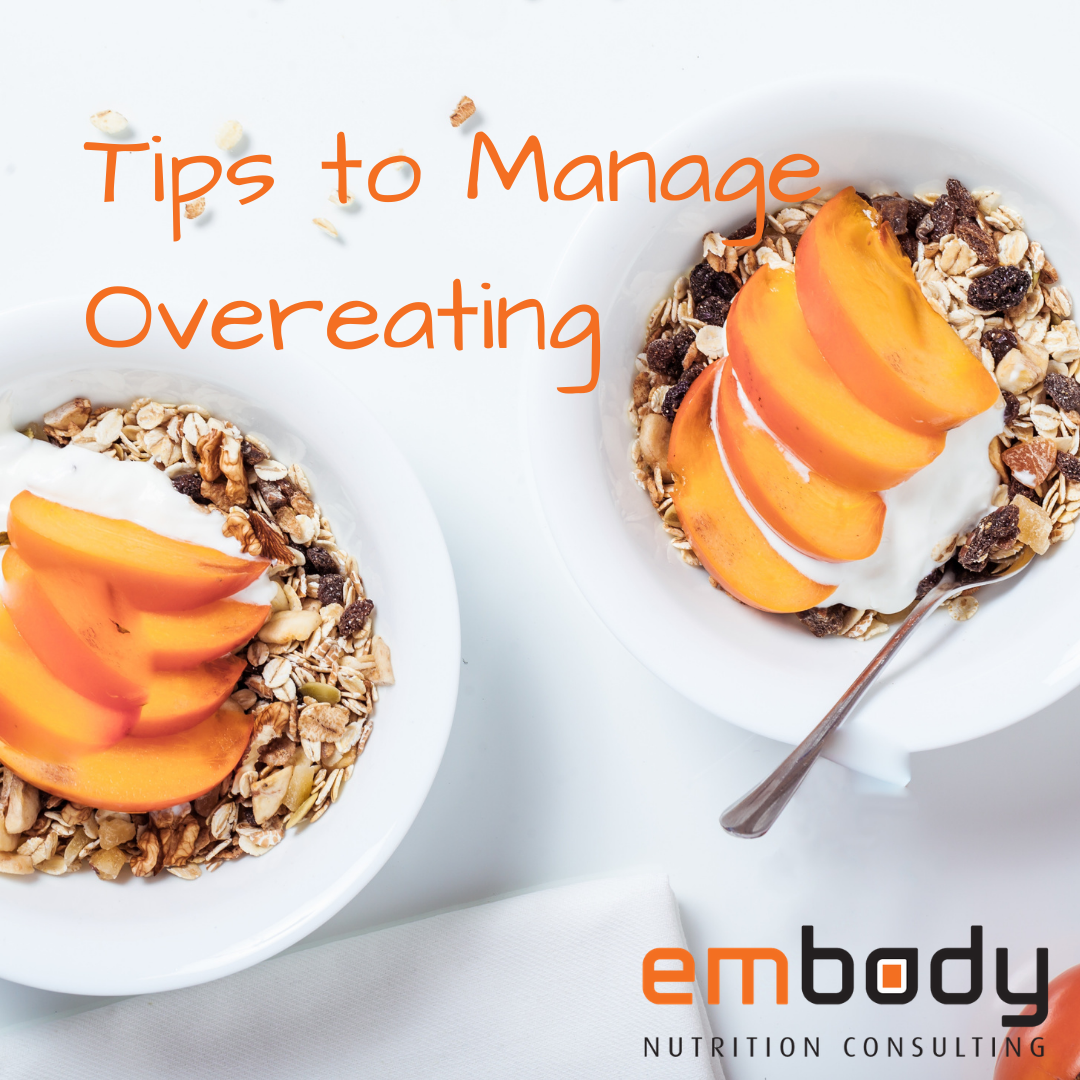I’m sure you can relate to the feeling of being too full – physical discomfort in your belly, needing to lay down, feeling sleepy, having to change into lose clothes (am I right?!). And while this happens to most people occasionally, for some, this feeling is all to familiar as it occurs on a very regular basis (possibly every day).
Over eating is not to be confused with binging, which is characterised by a feeling of being out of control. In this article, we are talking about consciously eating too much food, to the point where you feel uncomfortable. If this happens to you regularly, here are some tips that can help you stop this behaviour, or at least make it happen less frequently.
1. Practice mindful eating
The biggest tool you have available to you (and it is incredibly powerful) is your mind. Applying some mindfulness techniques during a meal can be a great way to help you become more aware of your hunger and fullness signals and therefore, learning to stop eating when you feel satisfied, rather than stuffed full.
Some things you can start to think about and implement are:
- How hungry you are BEFORE you start your meal. You could rate this on a scale of 1-10 (1=starving, 10=stuffed full).
- Eating your meal more slowly. Stop and take a break between mouthfuls and allow yourself time to register how your feelings of hunger change while you are eating.
- Aim to stop eating when you are feeling satisfied from your meal (about a 7-8 on your hunger/fullness scale). This might take a little bit of time to establish but just thinking about it each time you eat will make this feeling more familiar to you
2. Allow time after the meal
Once you have finished your meal, make an effort to wait for at least 20 minutes until you go back for more. It can take a little of time for your body to register how full you are feeling after a meal so allowing this window may be effective for a few reasons. The first is that it allows time to recognise fullness, but it also can help to break the habit of going back for seconds, if that is something that you regularly do (not because you hungry but because it is available!)
3. Avoid having a restrictive mindset
The last strategy that we commonly use when helping people to stop overeating is to avoid restricting foods and allowing yourself permission to eat any food, if you want to. Getting yourself out of a restrictive mindset can be really helpful – if you know that you can eat any food, at any time, if you want to, means that you don’t have to eat past the point of fullness on any one occasion.
An example of a restrictive mindset might be that you don’t allow yourself to have pizza but when you do, you eat way too much of it, to the point that you feel uncomfortable full. By allowing yourself the permission to have pizza, when you feel like it, you can remind yourself that you don’t need to overeat it on any one occasion. You can have it again, at any time!
If overeating is something that you struggle with and you would like more help to get past it, contact us today to book a one on one consultation.

